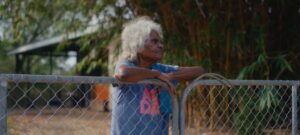The World Health Organization (WHO) recommends alcohol taxation as one of the most effective ways to prevent and reduce alcohol harms.
Introducing this form of taxation is a double win – not only does it reduce risky alcohol use, but it also increases government revenue through tax, thereby contributing toward services that address alcohol harms.
But such a strategy does not sit well with large, profit-driven alcohol companies.
Therefore, it was not surprising to see many alcohol industry lobby groups actively call for a cut in alcohol tax in the lead up to the Federal Budget in 2022, even though it meant increasing alcohol harms in our community.
Several of these alcohol lobby groups called for a 50 per cent cut in excise tax on draught beer, leaning on the argument that alcohol businesses suffered through COVID-19 and required more assistance.
We knew this was a false narrative because these groups had called for tax cuts long before COVID-19, and they also saw a $3.6 billion increase in alcohol retail revenue between 2019 and 2021.
So, when we heard through media reports alcohol companies were lobbying for tax cuts, we knew we couldn’t stay quiet.
In February 2022, we sent a letter to Hon Treasurer Josh Frydenberg explaining how a tax cut would be a disservice to the community.
Our open letter gained the support of over 80 health and community groups, who shared our belief that the current tax system is a vital pillar to help minimise further alcohol harms.
In the letter, we shed light on the fact that any reduction in the price of alcoholic products would add to the increasing amount of alcohol harms we have been witnessing over the past two years.
The existing alcohol tax system in Australia does prevent increasing alcohol harms because it is an excise tax that is indexed twice a year and matched to the Consumer Price Index (CPI). This ensures that the tax rate moves with inflation levels and that the price of alcohol changes with the cost of living. The letter indicated that this was an effective measure to prevent alcohol harms from further increasing.
In the weeks that followed, the rumoured tax cuts were labelled as a gimmick by Australia’s top economists, found expensive and ineffective in economic modelling by the Australia Institute, strongly opposed by community leaders and organisations across the country, and viewed by many Australians as a waste of taxpayer money.
When the Federal Budget was announced in March 2022, community groups were thrilled to see that alcohol tax cuts were not part of the Federal Budget. Strong community advocacy had resulted in common sense prevailing, with the health of our families and community prioritised over tax cuts for alcohol companies.
This victory was important because alcohol harms have been exacerbated in the past two years and have become a clear burden on members of our community.
Between 2019 and 2020, there was an 8.3 per cent increase in the rate of alcohol-induced deaths. Also, according to data from the Australian Department of Health, National Alcohol and other Drug (AOD) hotline calls tripled from 2019 to 2021.
The overall pressure on our health system is estimated to cost Australia $67 billion each year. Moreover, if alcohol excise tax was halved for draught beer, it would have resulted in a $150 million tax cut for alcohol companies.
So, where do we go from here?
While the Budget makes no mention of a reduction in draught beer excise tax, it does mention a tax exemption on venues pouring out growlers for up to 10,000 litres a year. According to FARE’s Annual Alcohol Poll 2020, which included Australia’s pre-pandemic period, 77 per cent of Australians used alcohol in their homes or someone else’s home. This tax exemption could potentially increase drinking at home.
In her opinion piece for Women’s Agenda, FARE CEO Caterina Giorgi emphasised how the Federal Budget was an opportunity to choose what we prioritise as a community.
“At a time when women are being disproportionately impacted by COVID-19 with increases in family violence, increased caring responsibilities and pressures, worsening mental health and increased alcohol use – why are hundreds of millions of dollars going to multinational beer companies?”
Caterina Giorgi, FARE CEO, Women’s Agenda
Health and community groups across Australia came together to ensure that the voices of our communities were heard. We know when we work together, we can bring about real-world change.
At FARE, we continue to work towards ensuring the health implications of alcohol use and its associated harms are reduced. But we need your continual support. Please consider donating to this resource-intensive work.







